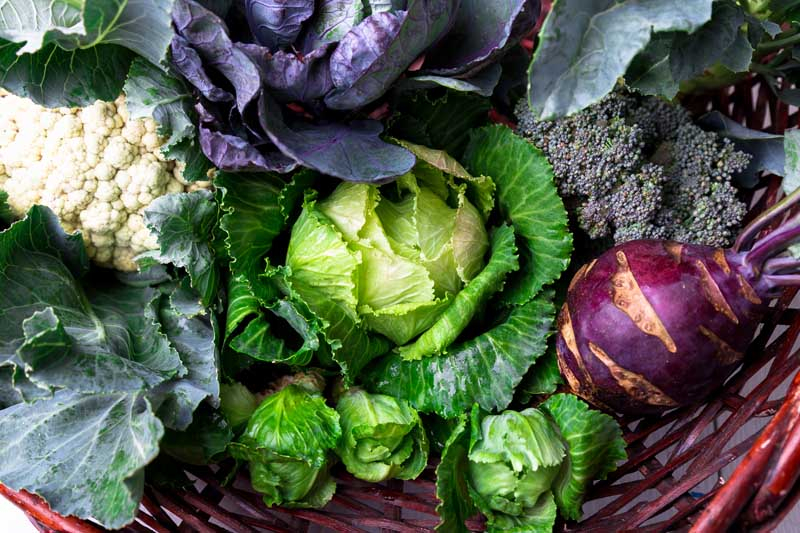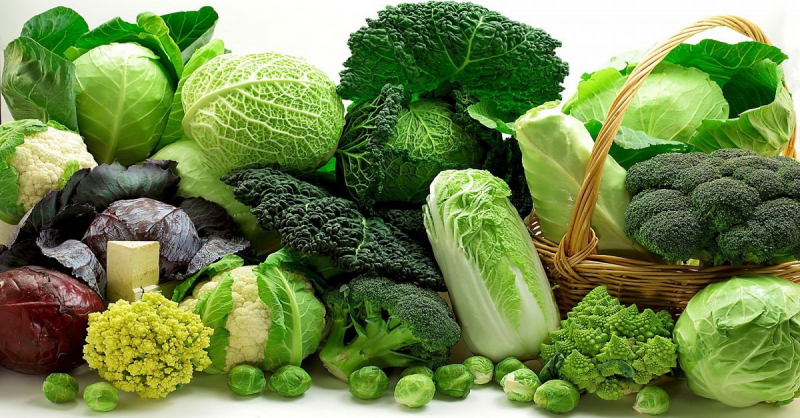Cruciferous Vegetables
Cruciferous vegetables are a rich source of vitamins C, E, and K as well as fiber, folate, other minerals, and other nutrients. Some notable cruciferous veggies are broccoli, cauliflower, brussels sprouts, cabbage, bok choy, turnips, etc.
These vegetables are a great addition to a low-fat diet because they are all almost entirely fat-free. Glucosinolates, which contain sulfur and are present in cruciferous vegetables, are also responsible for the plants' bitter flavor. In both animal and test-tube research, glucosinolates have been shown to have anti-cancer properties. Numerous human observational studies have also found a link between cruciferous vegetable consumption and a lower risk of developing various malignancies, including bladder, breast, colon, liver, lung, and stomach cancer.












